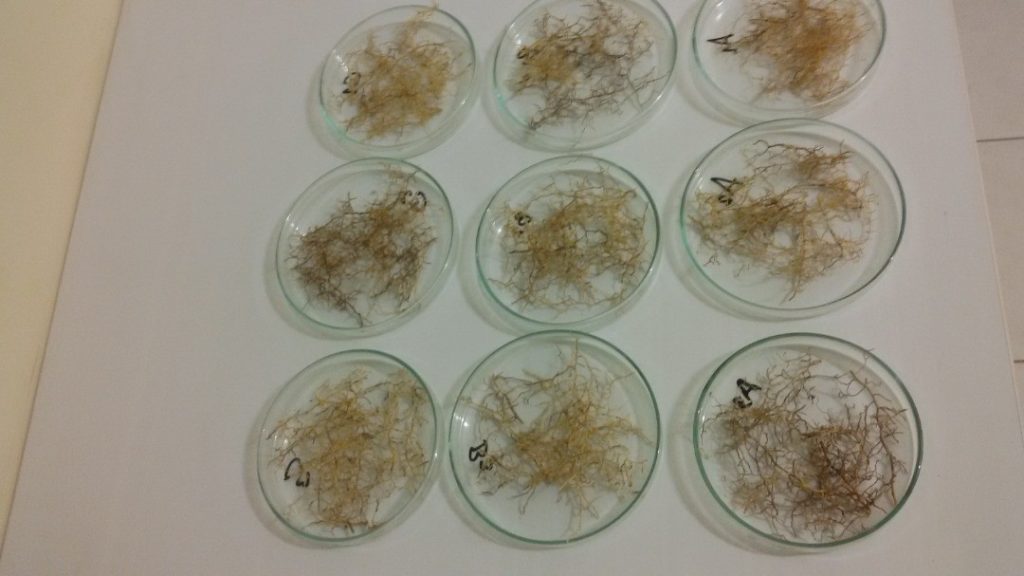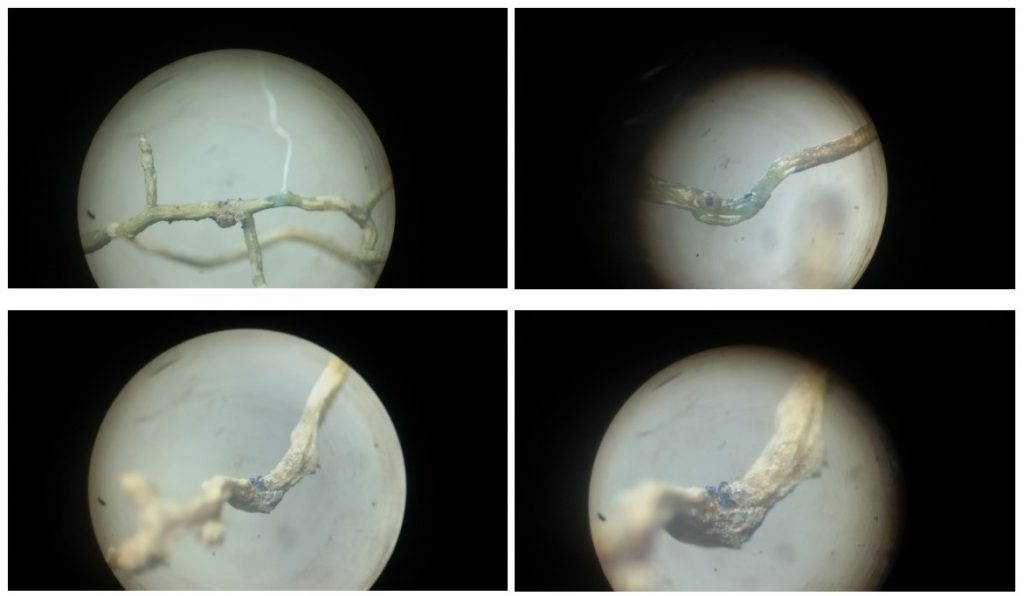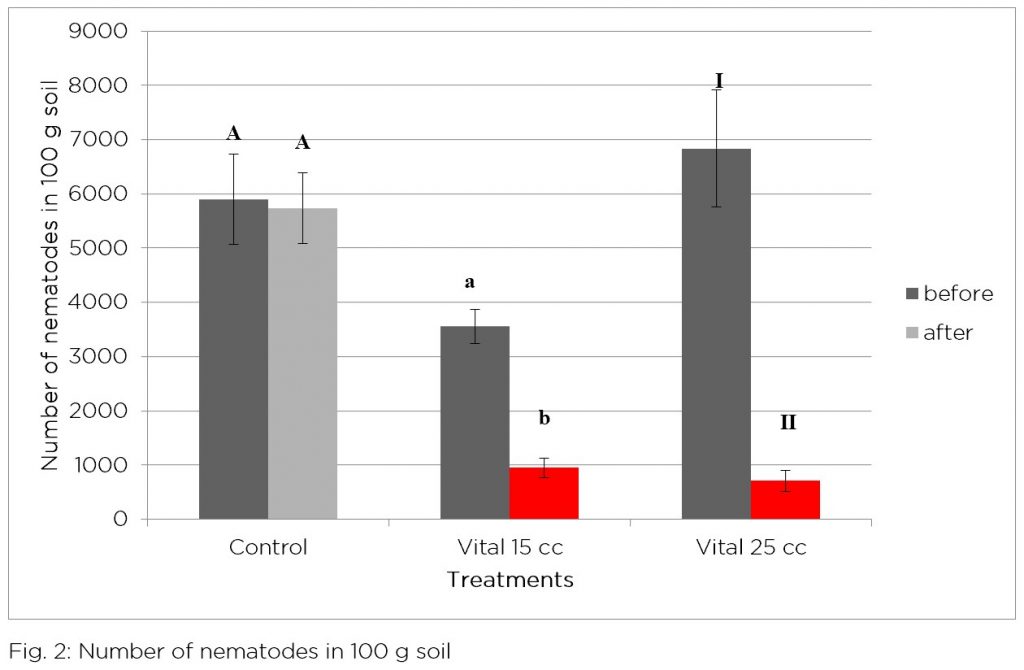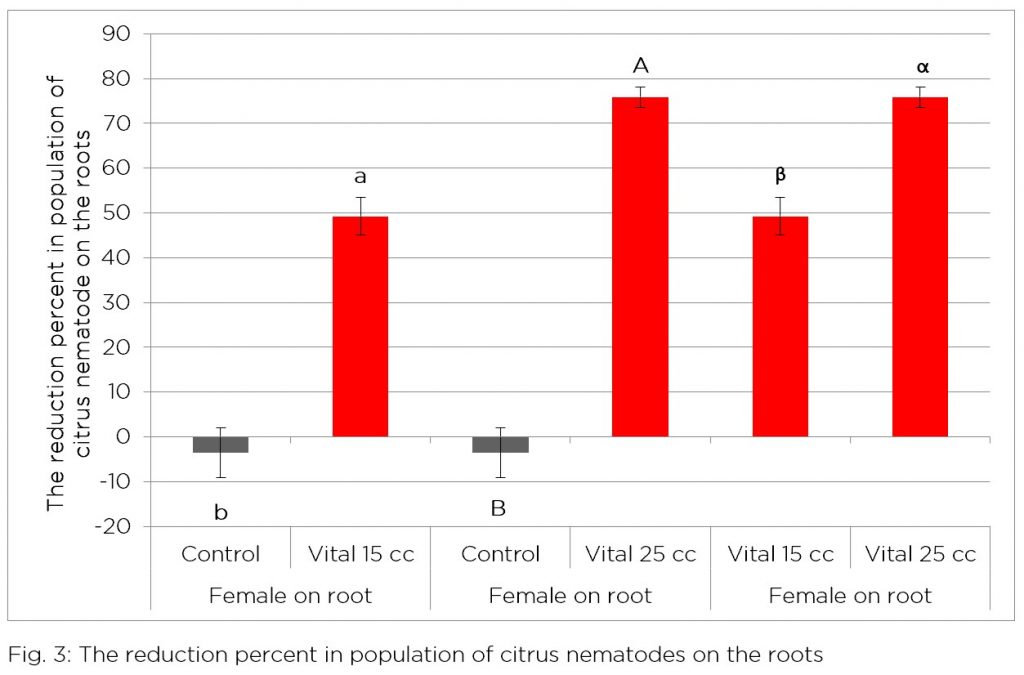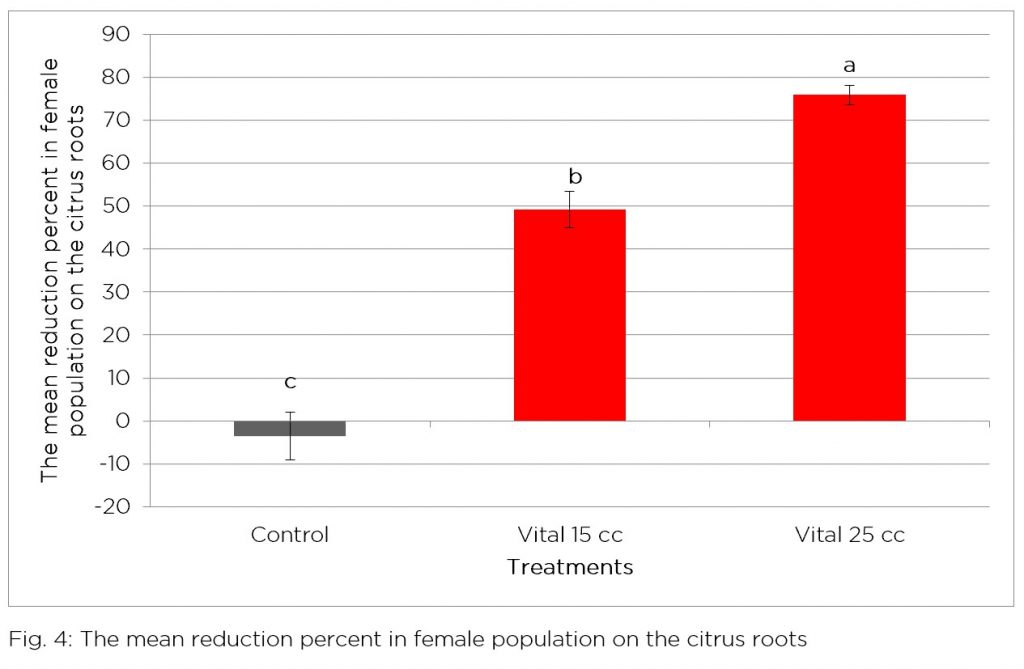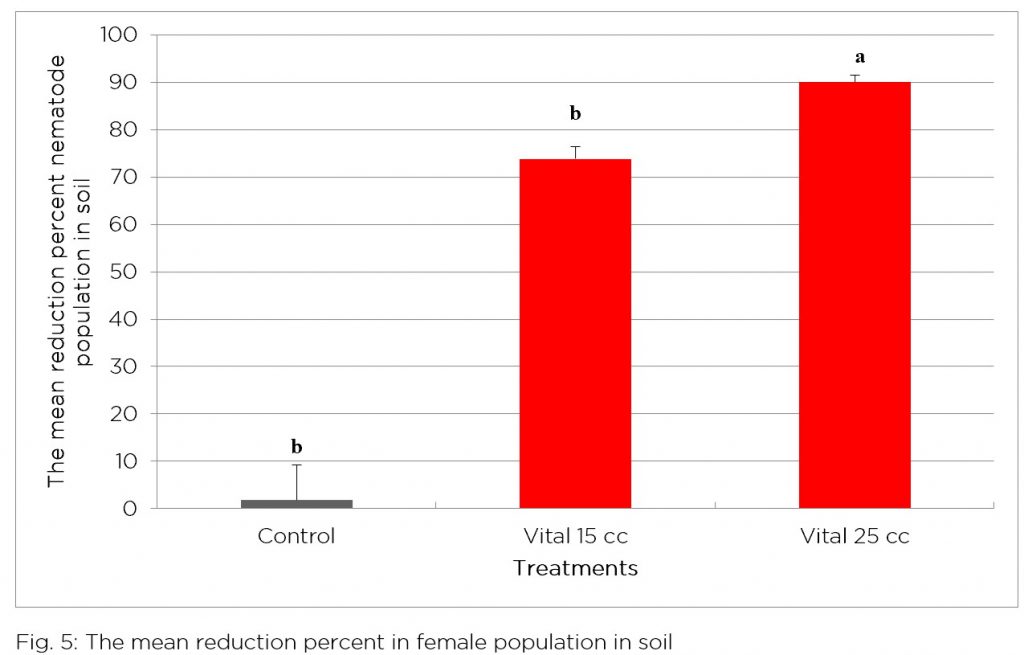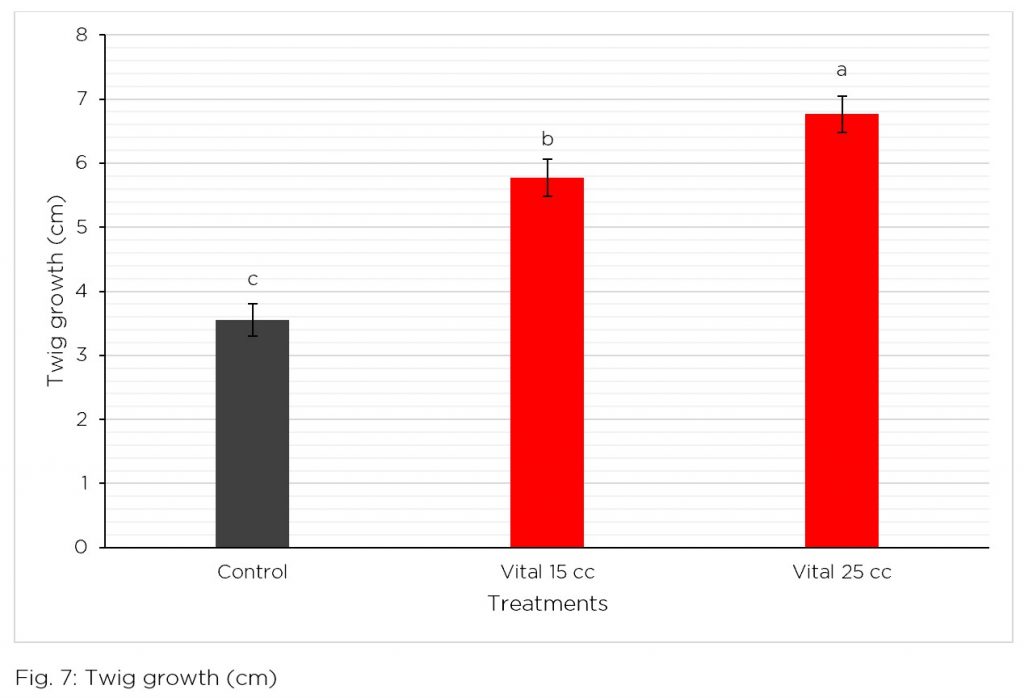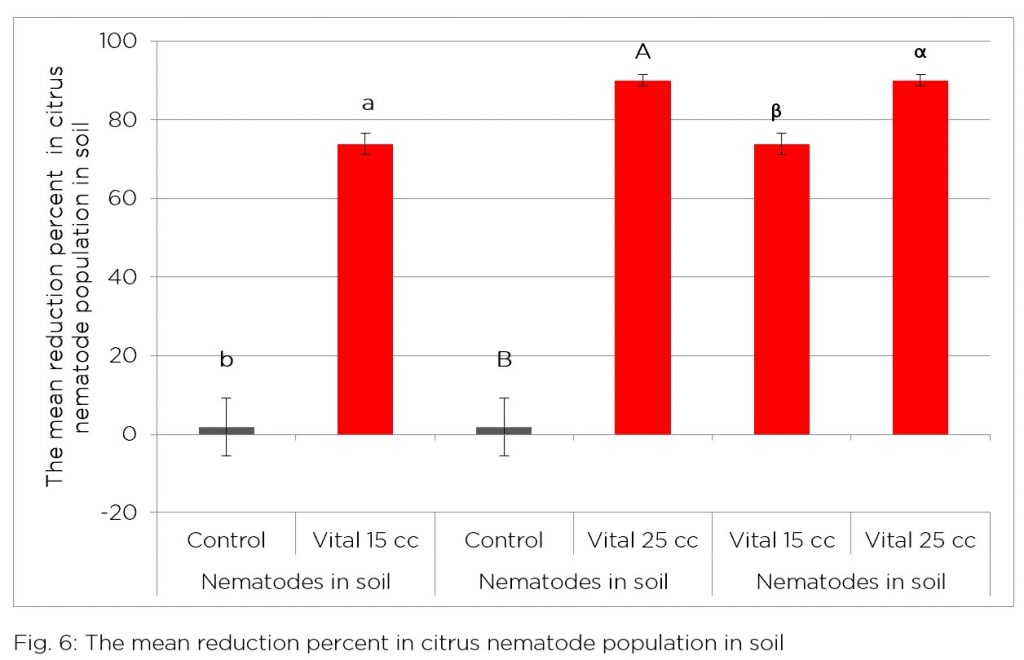Ban of organophosphate and carbamate nematicide in favor of reducing environment contamination and increasing society health, make the management of the plant parasitic nematodes problematic.
Since the use of pesticides used to control nematodes has been banned (Cadosaphos and Fenamifus) because they are dangerous.
The effect of Fenamifus (Nemakoor) and Cadozafus (Ragbi) on citrus nematode control Tylenchulus semipenetrans in Mazandaran province was investigated and it was shown that consumption of one gram effect in m2 shaded soil around trees reduced 78.5% and 65.2% of nematode population, respectively (Tanha Maafi and Damadzadeh, 2008).
As mentioned that, Fenamifus (Nemakoor) and Cadozafus (Ragbi) nematicide are capable of controlling nematodes but because of their high toxicity their use has been restricted in many countries including Iran. Therefore, investigating different nematicide is on the agenda to find a suitable alternative to these nematicide.
An experimental study was conducted in a naturally nematode-infected tangerine orchard to test the efficacy of Sanbio VITAL against citrus nematode. The population density of nematode was determined on roots and in rhizosphere before nematicide application.
Sanbio VITAL was applied only one time at 15 and 25 ml for each plant (equal to 6 and 10 liters per hectare). The nematode population density on the roots and in the soil and twig longitudinal growth was determined three months after nematicides application.
Sanbio VITAL decrease the population density of citrus nematode in soil and on the roots by 74% and 49 % when used at a rate of 6 liters / ha and 90% and 76 % when used at a rate of 10 liters / ha, respectively. Higher dose of Sanbio VITAL caused more twig growth.
Sanbio VITAL showed with 11% and 24% a significant higher efficacy than the above mentioned synthetic nematicides.
The results of the present experiment showed that Sanbio VITAL was effective in reducing citrus nematode population on root and inside soil. Therefore, Sanbio VITAL at a dose of 10 liters per hectare can be recommended in citrus orchards and its effect on increasing vegetative growth of the plant.
